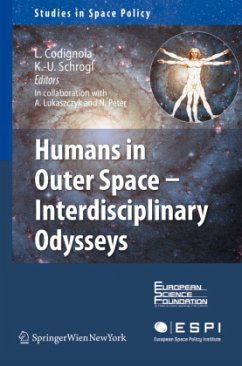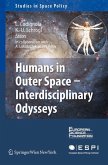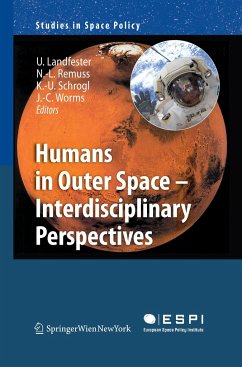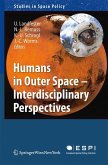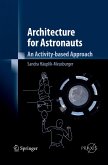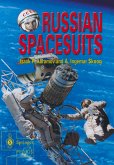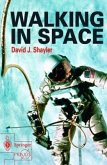The space-faring nations are heading for the human exploration of the Moon, Mars and Near-Earth Objects. They might be soon prepared with regard to technology development. But they also need to benefit from the humanities (history, philosophy, anthropology), the arts as well as the social sciences (political science, economics, law) for mastering this immense endeavour.
The European Science Foundation (ESF), the European Space Agency (ESA), and the European Space Policy Institute (ESPI) have organised the first comprehensive trans-disciplinary dialogue on humans in outer space. It investigates the human quest for odysseys beyond Earth's atmosphere and reflects on the implications of the findings of extraterrestrial life.
The articles in this book present, for the first time, a comprehensive analysis by all relevant disciplines responding to the questions of how, why and with what goal humans explore outer space. More than twenty experts shed light on the thrilling perspectives space exploration provides for science, technology, politics and culture.
Humans and space When faced with the issue of space exploration, one generally has an idea of the ?elds of study and disciplines that are involved: technology, physics and chemistry, robotics, astronomy and planetary science, space biology and medicine, disciplines which are usually referred to as the ?sciences?. In recent discussions, the human element of space exploration has attracted more and more the interest of the space sciences. As a consequence, adjacent disciplines have gained in relevance in space exploration and space research, in times when human space ?ights are almost part of everyday life. These disciplines include psychology and sociology, but also history, philosophy, anthropology, cultural studies, political sciences and law. The cont- bution of knowledge in these ?elds plays an important role in achieving the next generation of space exploration, where humans will resume exploring the Moon and, eventually, Mars,and wherespacetourism isbeginningtobedeveloped. With regard to technology, one might soon be prepared for this. Much less is this the case with space exploration by humans, rather than by robots. Robotic explorations to other planets across the solar system have developed in the past 50 years, since the beginning of the ?space age? with the presence of humans in nearby space and the landing on the Moon. Space exploration is now not only focused on technological achievements,asitsdevelopmentalsohassocial,culturalandeconomicimpacts. This makes human space exploration a topic to address in a cross-disciplinary manner.
The European Science Foundation (ESF), the European Space Agency (ESA), and the European Space Policy Institute (ESPI) have organised the first comprehensive trans-disciplinary dialogue on humans in outer space. It investigates the human quest for odysseys beyond Earth's atmosphere and reflects on the implications of the findings of extraterrestrial life.
The articles in this book present, for the first time, a comprehensive analysis by all relevant disciplines responding to the questions of how, why and with what goal humans explore outer space. More than twenty experts shed light on the thrilling perspectives space exploration provides for science, technology, politics and culture.
Humans and space When faced with the issue of space exploration, one generally has an idea of the ?elds of study and disciplines that are involved: technology, physics and chemistry, robotics, astronomy and planetary science, space biology and medicine, disciplines which are usually referred to as the ?sciences?. In recent discussions, the human element of space exploration has attracted more and more the interest of the space sciences. As a consequence, adjacent disciplines have gained in relevance in space exploration and space research, in times when human space ?ights are almost part of everyday life. These disciplines include psychology and sociology, but also history, philosophy, anthropology, cultural studies, political sciences and law. The cont- bution of knowledge in these ?elds plays an important role in achieving the next generation of space exploration, where humans will resume exploring the Moon and, eventually, Mars,and wherespacetourism isbeginningtobedeveloped. With regard to technology, one might soon be prepared for this. Much less is this the case with space exploration by humans, rather than by robots. Robotic explorations to other planets across the solar system have developed in the past 50 years, since the beginning of the ?space age? with the presence of humans in nearby space and the landing on the Moon. Space exploration is now not only focused on technological achievements,asitsdevelopmentalsohassocial,culturalandeconomicimpacts. This makes human space exploration a topic to address in a cross-disciplinary manner.

